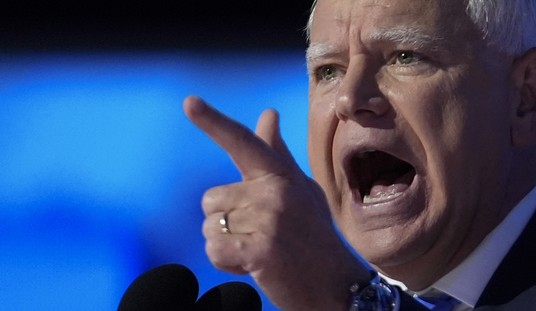In 1996 Congress enacted legislation designed to cut off material aid to terrorists. It has been tested in court a number of times and been modified after 9/11 by Congress to satisfy some judicial concerns about its constitutionality.
On Tuesday, February 23, it will face its first test in the Supreme Court when the Court hears oral arguments in Holder v. Humanitarian Law Project, et al., challenging a Ninth Circuit ruling (552 F.3d 916) which found that Congress’ efforts violated the Due Process Clause of the Fifth Amendment, or the First Amendment insofar as it prohibits the provision of “personnel” or “expert advice or assistance” derived from scientific or technical knowledge to such groups.
Background: Legislation
18 U.S.C. 2339(B) (a)(1) provides criminal penalties for knowingly providing material support for groups which have been designated foreign terrorist organizations. This act is known as the Anti-terrorism and Effective Death Penalty Act of 1996 (AEDPA). AEDPA authorizes the Secretary of State to designate an entity as a foreign terrorist organization (FTO). Such a designation may be challenged in the court of appeals for the District of Columbia. The designation makes the organization “radioactive,” subjecting anyone who knowingly provides material support or resources to such an organization to criminal penalties.
The act broadly defining “material support or resources” was the source of a number of court challenges, and was clarified by Congress in 2004 in the Intelligence Reform and Terrorism Prevention Act (IRPTA). This act defined, among other things, “training” and “expert advice and assistance.” It specified: “Individuals who act entirely independently of the foreign terrorist organization to advance its goals or objectives shall not be considered to be working under the foreign terrorist organization’s direction and control.”
Factual background
The secretary of state designated two organizations, as FTOs, the Kurdish Workers Party (PKK) and the Liberation Tigers of Tamil Eelam (LTTE). PKK did not dispute the designation. LTTE did, but lost its appeal to the D.C. circuit.
This case considers whether the provision of money and other support to what is described as the lawful and nonviolent activities of these two organizations can, consistent with the Constitution, be deemed criminal conduct.
Two suits were brought challenging the material support statute and they went from the district court to the court of appeals and back down and up again, in the middle of which the 2004 act clarifying the restrictions was enacted.
In its final determination before this case reached the Supreme Court on a writ of certiorari, the Ninth Circuit Court of appeals concluded that “training,” “service,” and “other specialized knowledge component of expert advice and assistance” are all unconstitutionally vague.
The Investigative Project on Terrorism’s Stephen Landman describes the significance of this case:
In asking the Supreme Court to review the lower court’s findings, the Justice Department explained that the law “is a vital part of the Nation’s effort to fight international terrorism” and that the specific provisions are not unconstitutionally vague. The government’s brief explained, “each of these terms has an established meaning and is readily understandable by persons of ordinary intelligence.”
Since 2001, the United States has charged approximately 120 defendants with violation of the material support statute. Many of those cases have involved the provisions in question, and more than half of those cases ended in conviction. Although two lower courts have struck down this important anti-terror law, the Supreme Court’s grant of certiorari provides an opportunity to clarify that this statute is not only necessary, but lawful.
The government regards the legislation as a significant tool in counterterrorism and has a reported 70 percent success rate in prosecutions brought under this legislation. It argues that the restrictions are clear and necessary and that aid to any portion of such organizations is fungible, meaning that providing money to the charitable wing of a terrorist group frees up resources for it to use for terrorist activities.
Many groups have filed amici (friends of the court) briefs on one or the other side of the issue:
A number of groups have submitted briefs supporting the arguments of the Humanitarian Law Project:
· Constitution Project and the Rutherford Institute
· Academic Researchers and the Citizen Media Law Project
(snip)
A number of groups have submitted briefs supporting the arguments of the government:
· Scholars, Attorneys, and Former Public Officials with Experience in Terrorism-Related Issues
· Center for Constitutional Jurisprudence and Center for Law and Counterterrorism
The briefs of the main parties are available online. Here is the opening brief for the Humanitarian Law Project (HLP).
Here is the government’s responsive brief.
And here is the HLP’s reply brief.
The Center for Constitutional Rights provides links to all the pleadings filed by all the parties in this matter.
While the government asserts that this legislation is a key component of its counter terrorism efforts and does not interfere with citizens’ rights to free speech and association, the opponents of the law, including the Center for Constitutional Law, co-founded by controversial attorney William Kuntsler, contend it infringes on constitutional rights:
In light of the government’s current fervor to brand groups that are not towing the line on U.S. foreign policy as “terrorist” organizations, this challenge to the criminalization of what have long been understood to be constitutionally protected activities is vitally important.
The Los Angeles Times reports that “from prisoners’ rights to environmental protection, laws set by the West’s powerful appeals court [the Ninth Circuit] were overturned in 15 of the 16 cases reviewed this term by the U.S. Supreme Court.”
I’d be surprised if this case doesn’t meet the same fate — reversal.









Join the conversation as a VIP Member